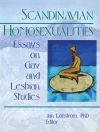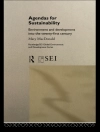Clean Energy presents a broad survey of the energy problems facing society over the coming decades and the prospects for their solution. The book emphasizes the importance of developing a strategy for the world’s future energy supply. The strategy must take into account: the finite supplies of natural gas and petroleum; the increased consumption of fuel by developing economies; the concern over greenhouse gas emissions; the pollution caused by burning coal (especially coal with a high sulphur content); the difficulties and costs of extracting unconventional fossil fuels; and the technical, sociological and cost barriers that restrict the use of renewable forms of energy. Clean Energy sets the various renewable energies (wind, waves, solar etc) in the context of present and projected world production of energy and its use in the time-frame until 2020 and looks speculatively beyond that. It looks at the possibilities for reducing pollution from fossil fuels and tackles the serious problem of how to store energy, in order to smooth out fluctuations in supply and demand. Clean Energy is well illustrated with diagrams and photographs. It is accessible to anyone who has studied science to A-level and will appeal to anyone with a serious interest in environmental matters, and the interaction between energy usage and the environment.
Table des matières
Society and Energy in Transition; Energy Production and Use; Clean Fuels; Electricity Generation; Renewable Energy – Thermal; Renewable Energy – Electrical; Why Store Electricity?; Physical Techniques for Storing Energy; Hydrogen Energy; Battery Storage; Electric Propulsion; Towards 2020; Conversion Factors; Abbreviations, Symbols and Units Used in Text; Glossary of Terms; Subject Index
A propos de l’auteur
James H Clark is Professor of Chemistry at the University of York, and is Founding Director of the Green Chemistry Centre of Excellence and the Bio-renewables Development Centre. He started the award-winning company Starbons Ltd and he is now involved in commercialisation of novel bio-based solvents and new green technologies. He was founding scientific editor of the world-leading journal Green Chemistry. His research has led to numerous awards including Honorary Doctorates from universities in Belgium, Germany and Sweden. He has Visiting Professorships in South Africa and China, and was recently appointed as Chair-Professor at Fudan University. He has published over 500 articles (h index over 72) and written or edited over 20 books and is Editor-in-chief of the RSC Green Chemistry book series. He has received numerous awards and distinctions including the 2018 Green Chemistry prize.












